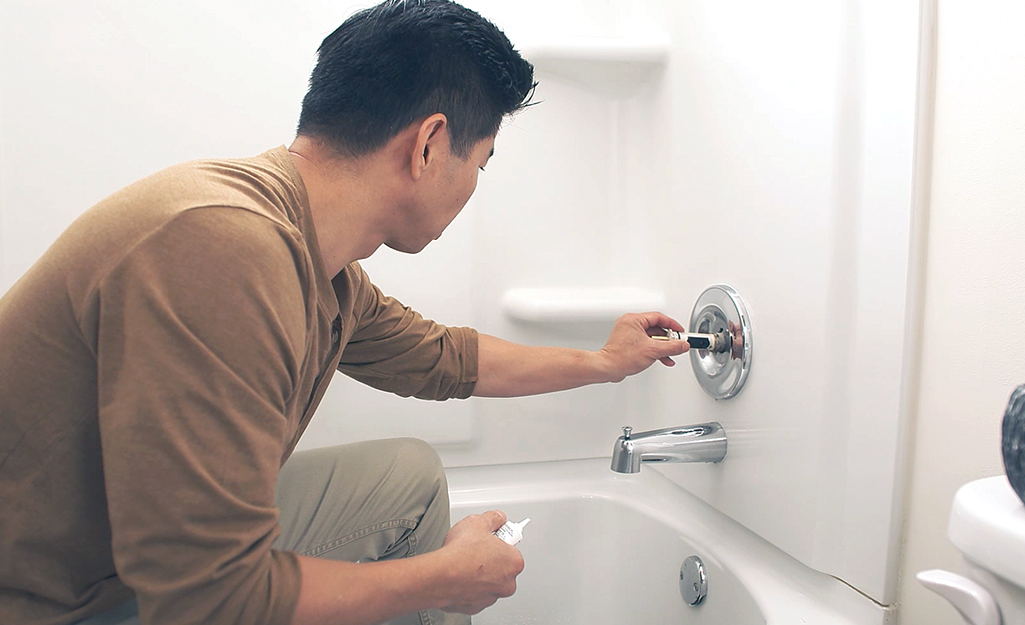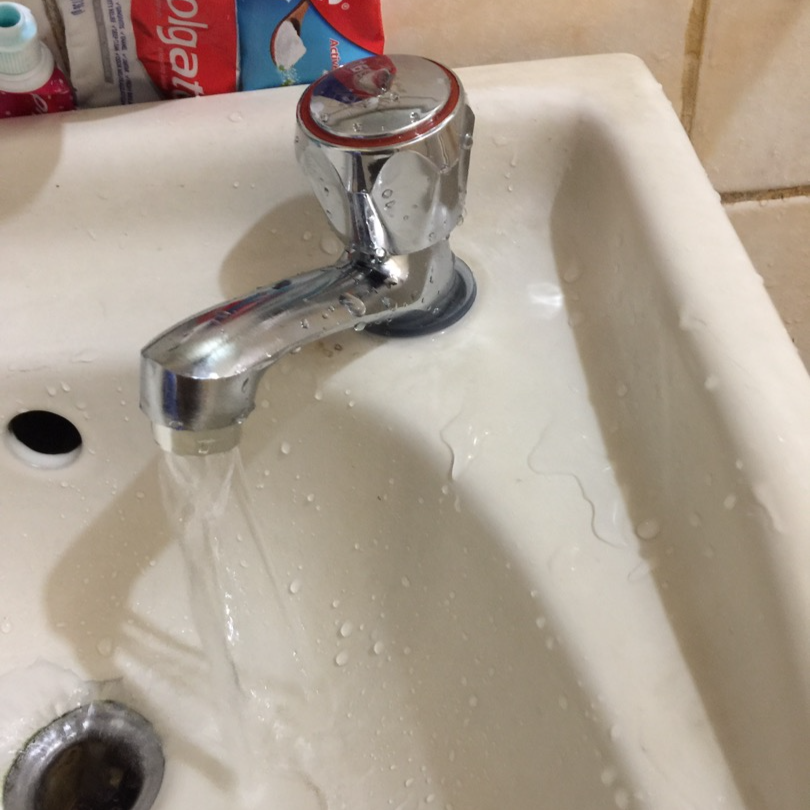Just how do you feel in regards to Water Dripping from Faucet: Why and How to Fix?

Leaking faucets might feel like a minor aggravation, however their influence exceeds just the nuisance of the audio. From drainage to incurring unnecessary financial prices and health and wellness threats, overlooking a trickling tap can cause different consequences. In this post, we'll explore why it's essential to address this typical home issue immediately and efficiently.
Wastage of Water
Environmental Influence
Dripping faucets add dramatically to water wastefulness. According to the Epa (EPA), a single tap dripping at one drip per second can squander more than 3,000 gallons of water annually. This not just pressures water sources yet additionally affects communities and wild animals depending on them.
Financial Prices
Increased Water Bills
Past the environmental impact, trickling faucets can inflate water expenses considerably. The gathered wastefulness over time equates right into higher utility expenses, which can have been stayed clear of with timely repair work.
Potential Home Damages
Additionally, extended trickling can result in damage to fixtures and surface areas bordering the tap. Water build-up can trigger staining, corrosion, and even architectural problems if left unattended, leading to added fixing prices.
Wellness Issues
Mold And Mildew and Mildew Development
The continuous presence of wetness from a trickling tap produces an ideal atmosphere for mold and mildew and mold development. These fungi not only endanger indoor air quality however additionally posture health dangers, specifically for individuals with breathing problems or allergic reactions.
Waterborne Illness
Stationary water in dripping faucets can come to be a breeding ground for microorganisms and other virus, enhancing the risk of waterborne diseases. Contaminants such as Legionella microorganisms thrive in stationary water, possibly bring about serious health problems when ingested or inhaled.
DIY vs. Specialist Repair
Benefits and drawbacks of DIY Fixing
While some may attempt to repair a leaking faucet themselves, do it yourself fixings come with their very own set of obstacles. Without proper understanding and tools, DIY attempts can aggravate the issue or bring about incomplete repair services, extending the issue.
Advantages of Hiring a Professional Plumber
Working with an expert plumber makes sure that the underlying root cause of the trickling faucet is resolved efficiently. Plumbing technicians have the know-how and tools to detect and repair tap concerns effectively, saving time and lessening the risk of more damages.
Step-by-Step Overview to Dealing With a Dripping Faucet
Tools Needed
Prior to trying to fix a trickling faucet, gather the essential tools, including a flexible wrench, screwdrivers, replacement components (such as washers or cartridges), and plumber's tape.
Typical Tap Issues and Their Solutions
Determine the sort of faucet and the details problem causing the drip. Usual troubles consist of damaged washers, corroded shutoff seats, or damaged O-rings. Refer to producer guidelines or on-line tutorials for step-by-step guidance on repair work.
Safety nets
Regular Maintenance Tips
To stop trickling faucets, do regular upkeep such as cleaning up aerators, evaluating for leaks, and replacing worn-out parts quickly. In addition, think about mounting water-saving devices or updating to more efficient components.
Importance of Prompt Repair Works
Attending to leaking faucets as soon as they're observed stops additional water waste and potential damage, inevitably conserving both water and cash over time.
Effect On Building Worth
Assumption of Well-Maintained Residential Property
Preserving a building in good condition, consisting of attending to maintenance problems like leaking faucets, boosts its viewed value and value among prospective purchasers or renters.
Influence on Resale Worth
Features with well-maintained plumbing components, consisting of taps, command greater resale values in the realty market. Resolving leaking taps can add to a favorable impact throughout home assessments and arrangements.
Ecological Duty
Specific Contribution to Preservation
Taking obligation for taking care of leaking faucets aligns with broader efforts toward water preservation and ecological sustainability. Every individual's actions jointly make a substantial effect on preserving precious resources.
Lasting Living Practices
By focusing on punctual repair work and embracing water-saving behaviors, people contribute to sustainable living methods that profit both existing and future generations.
Verdict
Resolving a dripping faucet exceeds simple ease; it's an important step toward saving water, lowering economic costs, and safeguarding health and residential property. Whether via do it yourself repairs or professional assistance, taking action to repair dripping faucets is a little yet impactful method to promote responsible stewardship of resources and contribute to a healthier, extra lasting future.
Why Are My Faucets Dripping (And Can I Fix it Myself)?
Causes of a Dripping or Leaking Faucet
Whether you’re hearing drops of water falling and hitting a sink, or noticing water ooze out from the base of the spout, you shouldn’t ignore a dripping or leaking faucet. And, the good news is, sometimes you can fix the problem yourself.
In this article, we’ll review a few common causes of dripping and leaky. We’ll also walk you through some basic ways to find the problem and handle it without calling anyone — and let you know when to call in a pro.
But, no matter what the cause, or whether you can handle it on your own, the sooner you address it, the better.
Each drip may be a tiny amount of water. But, they all add up quickly. According to the U.S. Geological Survey, one faucet losing one drop every 20 seconds — five a minute — wastes around a liter of water every day, and 173 gallons a year.
Add in more than one in your house, and it’s a lot of water to waste. So, we’ll help you get to the bottom of things quickly.
Four Reasons Your Faucet May Be Dripping
Aerator is Damaged or Unseated Valve Seat is Corroded O Ring is Loose or Worn Out Part of the Assembly is Loose Aerator is Damaged or Unseated
If you unscrew the end of your faucet, you’ll find the aerator. It’s the little stem piece with a screen on it that shuts off the water circulation.
If it’s damaged, or if it’s not sitting right, it will allow water to pass through.
Valve Seat is Corroded
Next is the valve seat, which is connected to the washer. If the washer wasn’t in place correctly, then it could have ground against the seat. Over time, this damages the valve seat.
The problem could also be corrosion: Over time, the part has worn out, and it’s now allowing water to pass through.
O Ring is Loose or Worn Out
Since the o ring is only a small rubber gasket, it’s a common reason why the faucet is dripping. You’ll find it at the base of the faucet, and it’s there to keep water from coming out where it’s not supposed to.
However, it’s common for the o ring to wear out over time. When it does, you’ll notice a drip.
Part of the Assembly is Loose
So far, we’ve looked at a few small, specific parts. But, the problem could be anywhere in the assembly if something’s out of place.
Even if a part isn’t damaged, over time, it may have become loose or dislodged. It could be the parts we mentioned, or the aerator at the tip of the faucet, the stem itself,
Can I Fix a Leaky Faucet Myself?
Depending on the problem, and how handy you are, there’s a chance you can fix a leaky faucet without calling a professional. But, you do run the risk of making the problem worse.
If it’s a small drip, you can certainly try a few troubleshooting tactics. We’ll walk you through them in a moment.
But, no matter what, your first step should be shutting off the water coming into the faucet. You should find a shutoff valve under the sink on the pipes leading to it. Turn each one clockwise until they close tightly.
Next, make sure you have the right tools for whatever you’re attempting. It’s tempting to make do with what you have. But, you need the right ones for a reason: You’re often dealing with small parts that can break if you handle them carelessly.
If you’re feeling confident, here are some places to start.
Items Near the Tip of the Faucet
A few of the parts we mentioned — particularly the valve seat and washer — are located at the tip of the faucet where the water comes out. They’re easy to access, making it a good place to start.
Check the O Ring
To check the o ring, you’ll need to take off the spout at the base. It’s easiest on kitchen sinks with long spouts, versus the smaller, bulkier base on most bathroom sinks.
Either way, this can be tricky, so do it carefully and don’t force anything. If it’s not coming right off, you’re much better off calling in a pro than possibly breaking something.
For a kitchen sink, there’s usually a nut or coupling assembly at the base of the spout. These often slide off easily without using any tools.
Once you’ve disassembled those parts, gently but forcefully twist off the spout.
Then, you can see the o rings. There should be two of the rubber gaskets on the base. If they look worn or damaged, replace them, and see if that solves the problem.

As a fervent reader about Should I Repair or Replace a Leaky Faucet?, I thought sharing that piece of writing was really useful. Sharing is nice. Helping others is fun. Many thanks for your time. Please check up our site back soon.